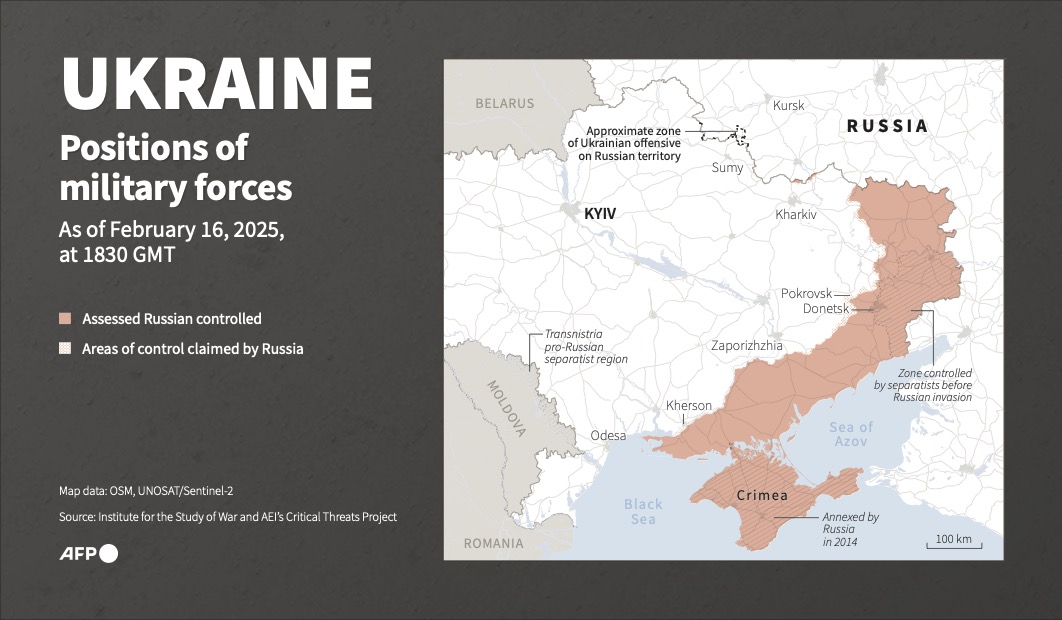LONDON: London will unveil a significant package of sanctions against Russia on Monday, which marks three years since the start of its war with Ukraine, UK Foreign Secretary David Lammy said Sunday.
“This is also the time to turn the screws on (Vladimir) Putin’s Russia,” Lammy said in a statement.
“Tomorrow, I plan to announce the largest package of sanctions against Russia since the early days of the war — eroding their military machine and reducing revenues fueling the fires of destruction in Ukraine,” he added.
UK’s decision to ramp up sanctions comes as US President Donald Trump has in recent weeks sought to sideline Kyiv and its European backers from talks with Russia on the future of the conflict.
“This is a critical moment in the history of Ukraine, Britain and all of Europe... Now is the time for Europe to double down on our support for Ukraine,” said Lammy.
London has already imposed sanctions on 1,900 people and organizations with link’s to Putin’s government since the start of the war, as of January 2025.
Its sanctions target the Russian financial, aviation, military and energy sectors, including through bank asset freezes, travel bans, and trade restrictions.
EU countries last week agreed a new round of sanctions which includes a ban on imports of Russian aluminum set to be formally adopted on Monday.
In his statement, Lammy reiterated UK’s military backing, which includes a pledge to provide £3 billion ($3.78 billion) annually to Kyiv and “being ready and willing to provide UK troops as part of peacekeeping forces if necessary.”
“Off the battlefield, we will work with the US and European partners to achieve a sustainable, just peace, and in doing so, remaining clear that there can be nothing about Ukraine without Ukraine,” Lammy added.

On Saturday, UK Prime Minister Keir Starmer held separate phone calls with EU chief Ursula von der Leyen and Ukrainian President Volodymyr Zelensky, repeating a similar message to Lammy’s.
Starmer is headed to Washington to meet Trump on Thursday, hoping to act as a “bridge” between the US and Europe to ensure territorial and security guarantees for Kyiv in the event of a deal to end the war.
The task looks increasingly challenging following a public spat in the last week between Zelensky and Trump, who called the Ukrainian leader a “dictator” and hailed “good talks” with Russia.
Trump also accused Starmer and French President Emmanuel Macron of doing nothing to end the war in a Fox News interview on Friday.
European countries fear that if Ukraine is forced into a bad deal by Washington then that will leave Putin claiming victory and the continent at the mercy of an emboldened Moscow.



























